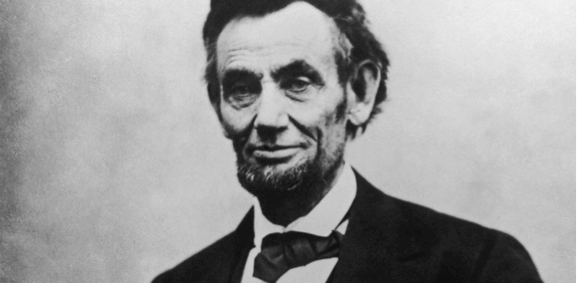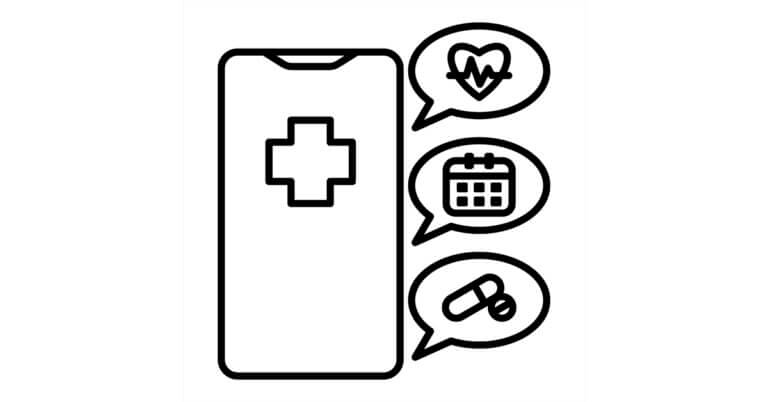November 21, 2016
Healthcare’s Gettysburg Moment
Seven score and thirteen years ago this month (November 19, 1863), Abraham Lincoln delivered his renowned Gettysburg Address at the dedication for the Soldiers National Cemetery. With the ravages of the ferocious July battle still evident, President Lincoln’s two-minute address redefined American democracy and its “Union” of states within the context of the nation’s bloody sectarian battle over slavery.
Since its founding, America had struggled to harmonize an egalitarian vision of humanity within a governing structure that legalized slavery, the nation’s original sin. The inability of America’s North and South regions to accommodate their differing worldviews led to a brutal Civil War. More Americans died in the Civil War than in all other American wars combined.
At its creation in 1965, President Lyndon Johnson agreed to debilitating structural flaws in Medicare’s payment mechanisms to ensure legislative passage. Since then, U.S. healthcare has struggled to harmonize a lofty vision of effective healthcare for all with an inefficient, fragmented and profligate operating reality.
Like the North and South squaring off in 1861 to determine the Union’s future, “Volume” and “Value” forces are now battling one another for control of U.S. healthcare. The American people’s health, wellness and productivity hang in the balance.
Insight and Eloquence
 Lincoln’s Gettysburg Address is the most celebrated statement of national purpose in American history. Generations of school children have recited it in speech contests. It’s concise eloquence echoes through the years. Here are its opening and closing lines:
Lincoln’s Gettysburg Address is the most celebrated statement of national purpose in American history. Generations of school children have recited it in speech contests. It’s concise eloquence echoes through the years. Here are its opening and closing lines:
Four score and seven years ago our fathers brought forth on this continent a new nation, conceived in liberty, and dedicated to the proposition that all men are created equal.
Now we are engaged in a great civil war, testing whether that nation, or any nation so conceived and so dedicated, can long endure…
…that this nation, under God, shall have a new birth of freedom—and that government of the people, by the people, for the people, shall not perish from the earth.
In his opening sentence, Lincoln references the “All men are created equal…” proclamation from the Declaration of Independence. American society did not then and has not yet achieved this expansive democratic vision of a just society.
After, the U.S. Constitution legalized slavery in 1789, the new nation struggled to manage its freedom-slavery contradictions until the South’s 1861 secession and subsequent attack on Fort Sumter. These actions launched America into civil war. The North fought and won to keep the Union together without slavery. Vestiges of that struggle remain today.
Lincoln kept the Union together at enormous cost, but with clear purpose and a deep understanding of America’s unfulfilled potential. In December 1862, Lincoln described the United States as “the last best hope on earth.” Before the Civil War, Americans said “The United States are…” Afterward, it became “The United States is…” The many became one.
Fragmented at Creation
With Harry Truman by his side, President Lyndon Johnson spoke with passion as he signed Medicare into law on July 30, 1965,
But there is another tradition that we share today. It calls upon us never to be indifferent toward despair. It commands us never to turn away from helplessness. It directs us never to ignore or to spurn those untended in a land that is bursting with abundance.
Unfortunately, the reality of American healthcare has not measured up to President Johnson’s lofty rhetoric. A fragmented system dispenses high-cost care through an uncoordinated delivery system. Outcomes are sub-optimal. Patient needs are regularly ignored. Unpaid medical expenses are the leading cause of personal bankruptcy.
Medicare’s enabling legislation incorporates two “original sins.” The first is activity-based payment. Despite all the discussion regarding value-based reform, fee-for-service payment and the perverse economic behaviors it spawns still dominate.
The second original sin is no governmental interference in medical decision-making. If doctors can justify medical treatments (a very wide standard), Medicare, Medicaid and by extension commercial health insurers must pay for those treatments. In U.S. healthcare, supply creates its own demand. “Justifiable” excess treatments increase revenues. Value suffers.
U.S. healthcare employs complex, centrally-developed reimbursement formularies that private-market participants exploit for their own economic benefit. The result is a payment system that at best invites manipulation and at worst stimulates massive fraud.
More troubling than the system’s profligacy is the toll it takes on caregivers and patients. They navigate through byzantine treatment labyrinths that depersonalize care, generate sub-optimal outcomes and marginalize customer experience. Far too often, American healthcare is cruel, unfeeling and mistake-prone.
Fifty-plus years of operating in this artificial economic environment has created major structural distortions. These include a massive asset bubble in acute care facilities, severe access limitations, an outdated academic medicine platform, and deplorable under-investment in public health.
The sins of forefathers (and mothers) return to haunt later generations. American healthcare is now engaged in a great battle testing whether its medical system can deliver the right care at the right time in the right place at the right price.
On one side is American society which wants better, more affordable, convenient, holistic and compassionate healthcare. On the other side is an entrenched medical empire with powerful incumbents fighting to keep the unsustainable status quo intact.
The heroes of this battle are companies, new and old, big and small, delivering better outcomes at lower costs in customer-friendly settings. Outcomes matter. Customers count. Value rules.
This November’s Surprise
Donald Trump’s surprise election win represents the latest chapter in an ever-changing and ongoing debate regarding government’s role in American society. What does “government of, by and for the people” mean in post-industrial, multi-cultural America? There’s never been a true pluralistic democracy in the history of the world, so the “American Experiment” continues.
That almost no-one envisioned a Trump presidency represents a collective failure of imagination. An exception was film-maker Michael Moore, who predicted Trump would win by connecting with disaffected working-class voters. He termed this phenomenon America’s “Rust-Belt Brexit.” Trump recognized and capitalized upon the pain and anger of working Americans who feel left behind.
America must work for all its people. Healthcare contributes to the broader economic dislocation as it consumes a greater percentage of the average person’s comp package while lower-income Americans develop ever-higher levels of chronic disease.
In the 2008 election, voters swept Democrats into power to improve government oversight after the Great Recession. In response, Democrats passed comprehensive financial and healthcare reform legislation. By contrast, the 2016 election hinged on there being too much government regulation and too little economic progress for working-class Americans.
As the new Trump administration takes shape, healthcare represents a unique opportunity to pursue bi-partisan reform based on the market-based mechanisms embedded within Obamacare (even after its repeal).
Paraphrasing Lincoln, market-based healthcare reform could appeal to the “better angels” of our government’s “nature” and be America’s “last best hope” for transforming its inefficient, uneven, fragmented and ridiculously expensive healthcare delivery system.
Justice and Value
 In a 1967 speech, civil rights leader Martin Luther King observed, “The arc of the moral universe is long, but it points toward justice.” In the same way, the long arc of market-driven healthcare reform points toward value.
In a 1967 speech, civil rights leader Martin Luther King observed, “The arc of the moral universe is long, but it points toward justice.” In the same way, the long arc of market-driven healthcare reform points toward value.
The Preamble to the U.S. Constitution begins with the phrase, “We the People of the United States, in Order to form a more perfect union…” This language recognizes the imperfect state of the current union and the ongoing need to improve its form, function and fairness.
What is true for the nation at large is poignantly true for American healthcare. The nation does not need to spend 18% of its economy to provide superior healthcare to everyone in the country.
We have it in our power to build a “more perfect” healthcare system. Receiving better healthcare for less money will free up enormous resources to fund other pressing needs and invest in more productive industries. It will lead to heathier individuals and communities.
Given its importance, cost and reach, fixing American healthcare is this generation’s major public policy challenge. At issue is whether we can give birth to a new healthcare system that engages with the people to provide better healthcare for the people at locations favored by the people.to t those in anguish, or feel in their heart painful wrath at the injustice which denies the miracle of healing to the old and to the poor.
Few can see past the speeches and the political battles to the doctor over there that is tending the infirm, and to the hospital that is receiving those in anguish, or feel in their heart painful wrath at the injustice which denies the miracle of healing to the old and to the poor.
Few can see past the speeches and the political battles to the doctor over there that is tending the infirm, and to the hospital that is receiving those in anguish, or feel in their heart painful wrath at the injustice which denies the miracle of healing to the old and to the poor.





